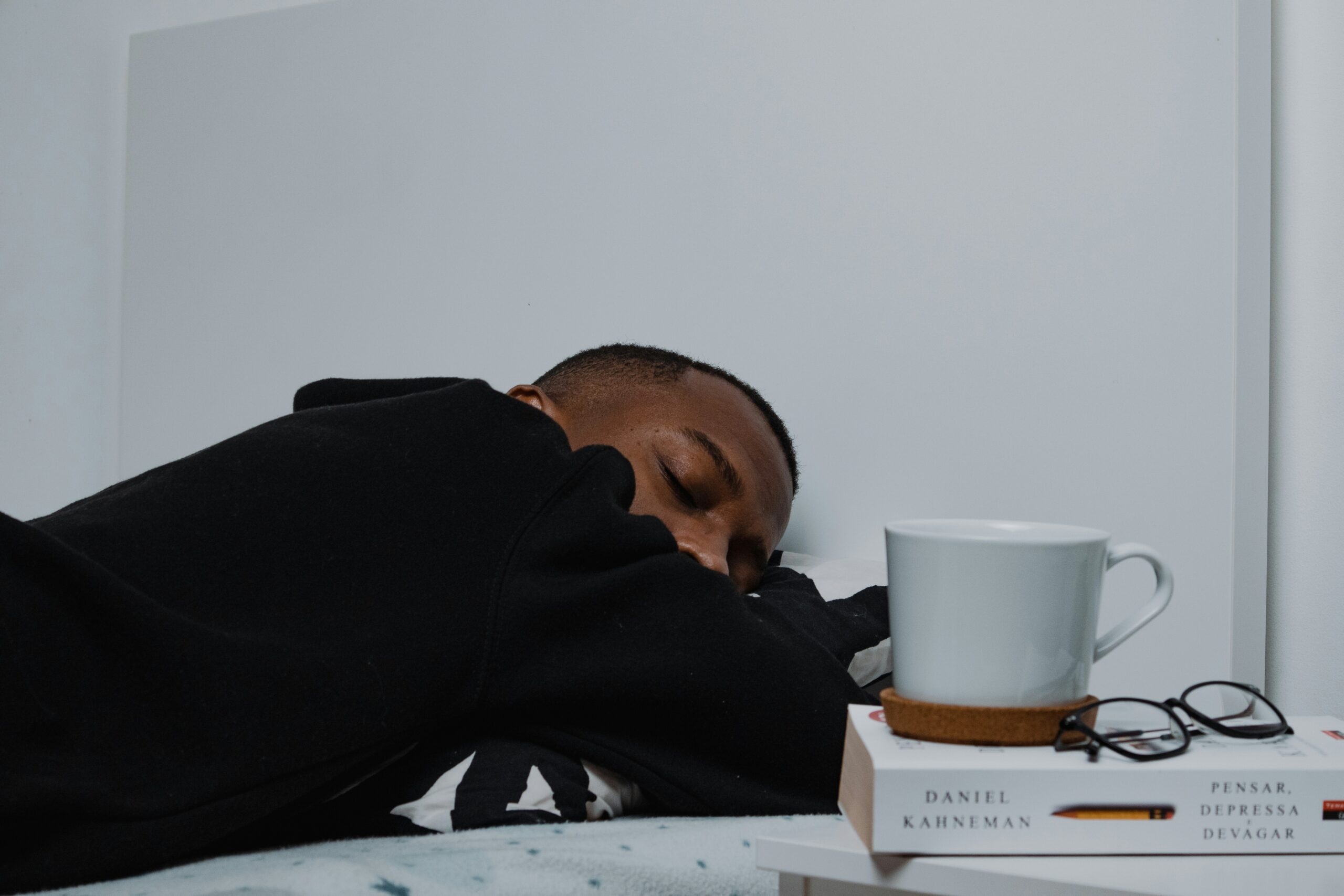When someone you love might be struggling with heroin addiction, it’s natural to have questions. Understanding how addiction starts, what it does to the brain and body, and what steps you can take if you’re concerned can help you feel less overwhelmed and more prepared to respond. These FAQs are designed to give you clear, compassionate information that’s easy to follow.
In this blog post, we’ll answer the following frequently asked questions about heroin addiction, how it develops, it’s impact on the brain and body, and how to respond if you suspect a loved one is struggling:
How Heroin Addiction Develops
Addiction doesn’t happen overnight. It usually develops from a mix of genetic, environmental, and personal factors. For families, it’s important to know the common pathways that lead to heroin use and how quickly dependence can set in.
1. Is Heroin Addiction Genetic?
Genetics can increase the risk of heroin addiction, but they aren’t the whole story. Research shows that about half of a person’s risk for developing addiction comes from inherited traits. If addiction runs in a family, someone may be more vulnerable to becoming dependent on heroin.
However, having a genetic risk doesn’t mean heroin addiction is inevitable. A person’s environment plays just as big of a role. Stress, trauma, mental health conditions, and exposure to drug use all raise the risk as well. Addiction usually develops when genetic predisposition and life circumstances overlap.
2. How Does Heroin Addiction Usually Start?
Heroin addiction often begins with prescription painkillers. Many people are first exposed to opioids like oxycodone or hydrocodone, and when those become too expensive or hard to get, they may turn to heroin because it is cheaper and more accessible. Others try heroin recreationally, not realizing how addictive it is. Even a few uses can create powerful cravings that lead to regular use.
3. Can Someone Be Addicted Without Using Heroin Every Day?
Yes. Addiction isn’t defined by daily use but by the loss of control over drug use. A person can be addicted even if they only use heroin a few times a week, because the brain starts to rely on it. They may spend a lot of time thinking about the next opportunity to use, have cravings, and experience withdrawal symptoms if they stop.
4. How Quickly Can Heroin Dependence Develop?
Dependence can develop within weeks, sometimes even after just a handful of uses. Heroin changes the brain’s chemistry quickly, creating a tolerance that makes a person need more to feel the same effects. Once dependence sets in, stopping heroin use leads to painful withdrawal symptoms, which can push someone to keep using even if they want to quit.
Heroin’s Impact on the Brain and Body
Over time, heroin affects nearly every part of a person’s life. These effects make it harder for someone to quit on their own and increase the risks when heroin is mixed with other substances.
5. What Does Heroin Do to the Brain and Body Over Time?
Long-term heroin use damages both the brain and body. In the brain, it alters the reward system, making it hard to feel pleasure from everyday activities. It can also affect decision-making and impulse control. Physically, heroin can cause collapsed veins, infections, liver and kidney disease, and a weakened immune system. These changes build up slowly but have lasting effects, even if someone stops using.
6. How Does Heroin Affect Mood, Memory, and Behavior?
Heroin can cause major shifts in mood and behavior. People often become depressed, anxious, or irritable when they are not high. Memory and focus can suffer, making it hard to keep up with school, work, or responsibilities. Loved ones may notice secrecy, lying, or pulling away from family and friends as heroin use takes over daily life.
7. What Risks Come With Mixing Heroin and Other Substances Like Alcohol or Pills?
Mixing heroin with alcohol, benzodiazepines (like Xanax), or prescription painkillers is extremely dangerous. All of these substances slow down breathing, and when combined, the risk of fatal overdose goes up dramatically. Many overdose deaths happen when heroin is used alongside other depressants.
Recognizing and Responding to Heroin Addiction
If you suspect heroin use, it can be difficult to know what to do. Responding with care and urgency rather than anger can help your loved one feel less isolated and more open to treatment.
8. What Are the Signs of Heroin Use?
Heroin use can show up in both physical changes and shifts in behavior. While every person is different, some of the most common signs someone is on heroin include:
- Small, pinpoint pupils
- Drowsiness or “nodding off” frequently
- Sudden weight loss
- Track marks or bruising on the arms
- Slurred speech or slow movements
- Secretive behavior or withdrawing from family and friends
- Money problems or missing valuables
- Neglecting responsibilities at work, school, or home
9. What Should I Do if I Suspect a Loved One of Heroin Addiction?
Trust your instincts. Look for signs like sudden changes in mood, withdrawal from loved ones, financial problems, or the presence of drug paraphernalia. Approach the person with compassion rather than judgment, since shame can fuel their substance use and push them further away.
Encouraging them to talk to a doctor, counselor, or addiction treatment provider is an important step. Even if they aren’t ready to seek help, confronting your loved one in a way that shows you care and are there to support them can make a difference.
10. What Should I Do if I Find Heroin Paraphernalia?
Finding items like syringes, burned spoons, or small baggies is a strong sign of heroin use. Handle the items carefully and safely, as syringes can carry bloodborne diseases. More importantly, this is an opportunity to talk to your loved one with honesty and concern. Express what you found, why you’re worried, and encourage them to get professional help.
Heroin Overdose and Emergency Preparedness
Overdose is one of the most urgent dangers of heroin use. Knowing the warning signs and being prepared with naloxone can save a life.
11. How Dangerous Is a Heroin Overdose, and How Do I Recognize One?
A heroin overdose is life-threatening and can quickly become fatal. Signs include very slow or stopped breathing, pale or bluish skin, limp body, pinpoint pupils, and loss of consciousness. If you suspect an overdose, call 911 right away. Quick medical intervention can save a life.
12. Should I Keep Naloxone (Narcan) at Home, and How Do I Use It?
Yes. If a loved one is at risk of heroin use or overdose, keeping naloxone (Narcan) on hand is highly recommended. Naloxone is a safe, easy-to-use medication that can reverse the effects of an opioid overdose. It is available in nasal spray or injectable form. In an emergency, follow the instructions on the package, then call 911 immediately. Even if naloxone revives them, medical care is still necessary.
Heroin’s Make Up + Drug Class
Understanding where heroin fits among other drugs can help families make sense of its dangers. Heroin is not like alcohol or inhalants; it belongs to a class of drugs with some of the highest risks for addiction and overdose.
13. Is Heroin an Opiate or Opioid?
Heroin is an opioid. The term “opioid” refers to all drugs that act on the brain’s opioid receptors, including both natural drugs and those that are synthetic or semi-synthetic. “Opiates” are a smaller group within this category and only include the natural compounds from the opium poppy, like morphine and codeine.
Heroin is made from morphine, but it goes through chemical processing before it’s sold illegally. That makes it a semi-synthetic opioid. The distinction between opiates vs. opioids may sound small, but it matters because all opioids, whether natural or man-made, come with the same risks: addiction, overdose, and long-term changes in the brain and body.
14. Is Heroin an Inhalant?
Heroin is not an inhalant. Inhalants are things like paint thinner, glue, or nitrous oxide, which people breathe in to get high. Heroin is an opioid, and while it’s most often injected, some people also smoke or snort it.
Smoking heroin might look similar to inhalant use, but the effects are very different. With inhalants, the high comes from breathing in chemical fumes. With heroin, the effects come from how the drug interacts with opioid receptors in the brain.
15. What Schedule Drug is Heroin?
In the United States, heroin is classified as a Schedule I controlled substance. Schedule I drugs are considered to have:
- A high potential for abuse
- No currently accepted medical use in the U.S.
- A lack of accepted safety for use under medical supervision
Unlike some other opioids (such as morphine or oxycodone, which are Schedule II and used in medical settings), heroin is illegal and has no approved medical purpose. Its addictive nature and high risk of overdose place it in the strictest category.
Help Your Loved One Break Free from Heroin Addiction
Watching someone you care about struggle with heroin can feel overwhelming, but recovery is possible with the right support. At Northpoint Recovery, we offer compassionate, evidence-based drug addiction treatment that addresses both the physical and emotional sides of addiction.
From safe medical detox and personalized therapy to long-term relapse prevention, our team is here to provide the tools and guidance your loved one needs to heal.
You don’t have to carry this burden on your own. Contact us today to learn how we can help your family take the first step toward lasting recovery.


